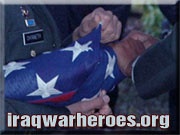Originally appeared
here.
She lay, legs spread and draped in paper, staring at the ceiling while the doctor did his work. She didn't want to think so she distracted herself with the song she'd heard on the radio on her way to this dreaded appointment. Hell, she was nearly forty and should be used to these exams by now, but this one was different. Hugely different.
Just walk away Renee, you wont see me follow you back home . . .She couldn't remember the whole song, so sang the first lines of the chorus over and over in her mind.
Just walk away Renee . . .The snap of rubber gloves popping from his hands as he stood over the garbage with a satisfied grin. “Congratulations! You’re going to be a mother again!” When the announcement was met with confusing silence, he filled it by sharing he believed she was having a girl. After all, he’d accurately predicted the sex of her first three children and though fourteen years had passed since the birth of the last boy, it was time for a girl.
Just walk away . . .“What’ll you name her?” he asked.
Still staring at the ceiling, “I think I’ll call her Renee,” she said.
It came as no surprise. She’d already done the math. Counting backwards from this moment to New Years Eve, 1966, added up to baby. The song played twice more on her drive home. She cursed herself; a middle-aged divorcee widow with a baby due days before she’d welcome her first grandchild into the world. She ran scenarios through her head. Get married? To that she heard her orthodox mother, yelling in broken English about the shame of three marriages. Don’t get married and keep Renee? To that, her mother abandoned English and ranted in her native Ukrainian.
Her thoughts shifted to her children. Two weeks prior, her pregnant nineteen-year-old daughter climbed from her bedroom window in the middle of the night to elope with the baby’s father. Her sixteen-year-old son already had a criminal record and she worried her fourteen year old would follow suit. She’d done her best with her kids, but right now best wasn’t looking so good.
She tried to envision the baby . . . Renee . . . but all she could see was another difficult teenager. She decided on adoption before reaching her house.
The next day, she put her beauty salon on the market. For her friends, family and Renee’s father, Robert, she concocted a story about an irresistible job offer on the other side of the Cascade Mountains. A month later, she filled her 54 Chevy Belair with suitcases and boxes and set off to make the round of goodbyes. She saved the hardest for last. Renee’s father leaned through the opened driver’s side window. Without any idea the weight of his words he asked, “Grace, will you stay if I ask you to marry me?”
When she said she couldn’t and drove off to the life of pretend she’d live the next six months, he had no idea she was taking his baby with her.
The apartment was furnished in 1960s cheer: turquoise walls, yellow kitchen, shag carpet and orange vinyl furniture perched upon chunky wooden legs. It came furnished, the pictures on the wall not even belonging to her. That was just as well. She wasn’t here to make memories. She was here to forget.
Towards the end of her fourth month, she slipped on her light blue Capri’s; realizing the struggle it was now to fasten them. Soon, she’d be showing. The ring of the doorbell surprised her. Had she forgotten another appointment with the social worker?
But instead stood Renee’s father. A full foot taller than her, he was nothing but muscle and skin highlighted by the roundest, bluest eyes she’d ever seen. No one would describe him as handsome. His features were too large for his lean frame. But there was something about his quiet reserve, something mysterious, and perhaps sad, behind his liquid eyes. He kept so much to himself she felt honored by his interest in her.
In his hand was a bouquet of Skagit valley tulips, reminding her life on the other side of the mountains continued without her. He’d made the six hour drive unsure if she even wanted to see him again, but determined to at least let her know he loved her and was waiting. She did love him, was crazy about him in fact, and hoped he’d still be interested when she told him about Renee and the plan for her future.
They spent the next few days deep in conversation, snuggled together on the orange vinyl couch. They chain-smoked and drank too much, but it helped the conversation flow. She told him about Renee. He told her about the son he’d surrendered rights to eighteen years prior. In the end, they were on the same page. Her fear of raising another child and his guilt for not raising his first combined to seal Renee’s fate.
They thought it was for the best. They rationalized that a 44 year old WWII vet with no parenting experience and a forty year old burnt out mother of teenagers couldn’t do the job as well as a young couple with a desperate desire for a family. The social worker, a woman in her late 50s, was the best in the field and she’d promised a perfect match for Renee; so perfect, in fact, she’d never miss the two of them.
She went into labor on Renee’s due date. Eight hours later, weighing only five pounds, Renee entered the world with neither incident nor celebration. She was whisked off to the nursery, cleaned, swaddled and placed in a bassinet in the back of the room – away from the glass through which aunts, uncles, cousins and grandparents welcomed their family members into the world.
Unmarried mothers recovered together in a room as far from the nursery as possible. Hospital staff meant to assure they didn’t hear the cry of newborns or the gushing of visiting family. Here, they were un-mothered. They were given drugs to dull their senses and drugs to stop mother’s milk from filling their breasts. Their only visitors were social workers and attorneys, who arrived with paperwork and accolades.
Sister Mary Agnes was on nursery duty that morning. She couldn’t take her eyes off the petite newborn in the rear of the nursery – or the words “ADOPTION” written on the chart hanging from her bassinet. Relinquished newborns were not uncommon. She was used to praying for these orphans and the frightened young girls who brought them into the world. But, this morning she prayed for herself; for forgiveness for the rules she was about to break. This baby’s mother looked like the typical American housewife and, somehow, she couldn’t fathom why she was relinquishing. She scooped the baby up and headed towards the un-mothering room, hoping to change fate.
She lay the baby in the crook of her mother’s arm. Grace spent the next five minutes staring at her perfect, tiny baby girl. Her left arm; the one that should have naturally risen from the bed covers to unswaddle Renee, count her fingers and toes, then pull her into a loving embrace, stayed at her side. She willed it to stay there, rejecting nature’s design.
By the time Sister Mary Agnes returned to the room, chaos had erupted. The social worker had arrived. Grace’s roommate, having watched Grace hold her baby, demanded to see her own child. The social worker shot Sister Mary Agnes a scathing look and handed her Renee. She looked at Grace, trying to determine if her moments with Renee succeeded in changing the course of this baby’s life. She saw no hope, but God works in mysterious ways. By the end of the day, the other mother from the un-mothering room refused to sign relinquishment papers and checked herself out of the hospital with her baby.
Renee left with the social worker; taken to the foster home she’d reside at until a suitable placement was arranged. Three months later, the file of a farming couple crossed her desk. There were home visits and interviews. The match was perfect – this family shared a Norwegian heritage with the baby. Had the social worker delved further, she might have discovered the adoptive father was also the town drunk.
While Renee’s adoptive fate was sealed by the Department of Public Health, across town her father sat in the courthouse parking lot. It was finalization day and he’d driven Grace to meet with the judge. He stared at the ashtray full of cigarette butts, collected since Grace left the car. He’d never laid eyes on his baby girl; his name would not be placed on her birth certificate and he would never quite forgive himself for this decision. There was time to stop it all – walk into the courtroom, announce his presence – but he couldn’t move a muscle. Grace now wore his ring on her finger. There was a wedding to plan and it just seemed too late to take it all back now.
Just walk away Renee, you won't see me follow you back home . . .He turned the radio off when the song came on . . .
It was Renee’s father who would wake each year on September 22nd and ask Grace, “Do you know what day it is?” she’d reply a quiet “yes, I do,” and he’d return to the bedroom for the rest of the day. Shortly following Renee’s thirteenth birthday, long after Renee’s adoptive father disappeared from her life, he’d succumb to cancer.
Just nine years later, Renee would learn this on the day she thought she found him. Later, with her mother by her side, she’d place a single rose upon his grave, saying goodbye forever to the chance of saying hello.
Lyrics from Walk Away Renee:
And when I see the sign that points one wayThe lot we used to pass by every dayJust walk away ReneeYou won't see me follow you back homeThe empty sidewalks on my block are not the sameYou're not to blameFrom deep inside the tears I'm forced to cryFrom deep inside the pain I chose to hideJust walk away ReneeYou won't see me follow you back homeNow as the rain beats down upon my weary eyesFor me it criesYour name and mineInside a heart upon a wallStill finds a way to haunt meThough they're so smallJust walk away ReneeYou won't see me follow you back homeNow as the rain beats down upon my weary eyesFor me it criesJust walk away ReneeYou won't see me follow you back homeThe empty sidewalks on my block are not the sameYou're not to blame















